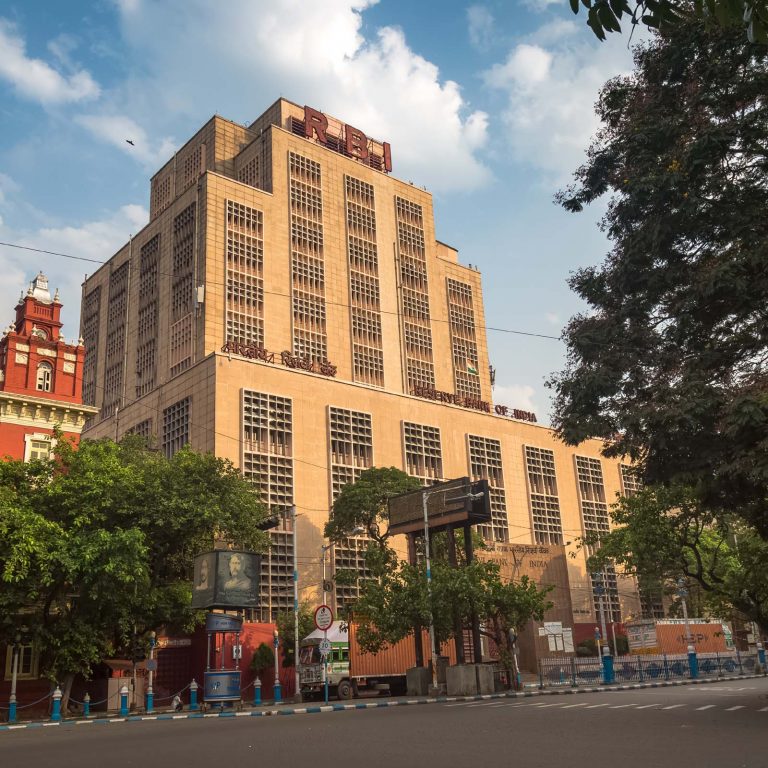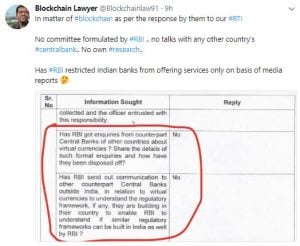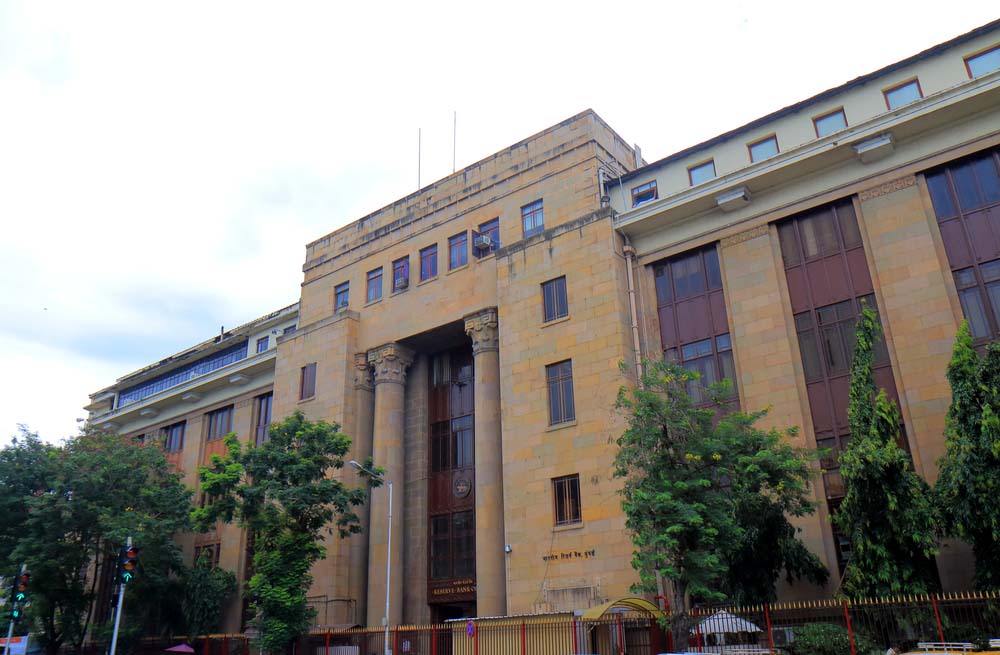Latest news about Bitcoin and all cryptocurrencies. Your daily crypto news habit.

RBI, the central bank of India, has not made a proper effort to thoroughly research the nature and usage of cryptocurrencies before issuing its crypto ban. This is according to a reply sent by the bank to a Right to Information query filed by a lawyer. Copies of the communication have been distributed on social media and published by local crypto outlets.
Also read: Pakistanis Find Ways to Trade Bitcoin Rendering Ban Ineffective
The Right to Know Why
On April 5 of this year, India’s central bank issued a controversial decree directing all regulated financial institutions to quit providing services to businesses dealing in cryptocurrencies such as bitcoin, giving banks three months to comply. The move was formally motivated by the need to protect consumers and prevent money laundering. The Reserve Bank of India (RBI) also announced the formation of a working group to study the feasibility of issuing a state-backed cryptocurrency.
This week, however, it became evident that the RBI has not made any serious effort to thoroughly study and understand the nature, principles, and usage of cryptocurrencies before issuing the ban. No internal committee had been formed to investigate the purported risks associated with trading digital coins and no officer or team of experts had been tasked to produce a substantiated decision. Indian exchanges and individual traders were hit hard by the measure. The ban has been challenged in the Supreme Court, and some trading platforms have decided to leave the country in search of more favorable jurisdictions.
 Earlier today, a Twitter user, @Blockchainlaw91, posted the Right to Information enquiry filed with the RBI, along with the reply sent back by the central bank. According to Kunal Barchha, cofounder and director of the company behind the upcoming crypto exchange Coinrecoil, the author of the query is Mr. Varun Sethi, an Indian blockchain lawyer. Coinrecoil’s operator, Kali Digital Eco-Systems, has appealed to the High Court in Delhi against the recent RBI crackdown.
Earlier today, a Twitter user, @Blockchainlaw91, posted the Right to Information enquiry filed with the RBI, along with the reply sent back by the central bank. According to Kunal Barchha, cofounder and director of the company behind the upcoming crypto exchange Coinrecoil, the author of the query is Mr. Varun Sethi, an Indian blockchain lawyer. Coinrecoil’s operator, Kali Digital Eco-Systems, has appealed to the High Court in Delhi against the recent RBI crackdown.
Q&A with a Central Bank
Mr. Sethi has asked the RBI several relevant questions, including if there was any committee constituted within the RBI that had determined the risks being associated with trading in virtual currencies. He also wanted to know how these risks were determined, and if any responsibility has been entrusted to an officer or a team to understand the nature, working of cryptocurrencies and the possibility of their usage in India, the local outlet Crypto News reported.
To all of these questions the RBI has replied negatively and done away with referencing its multiple circulars mentioned as justifications for its actions. The bank has also noted that it “was a member of the Inter Disciplinary Committee constituted by the Finance Ministry and the Indian government in March, 2017, to examine the status of virtual currencies and suggest regulations,” as if that provides enough legitimacy to issue a ban.
The RBI also admits it has done no research before reaching a conclusion on its stance when it released a circular on December 24, 2013, reading that “The Reserve Bank of India has today cautioned the users, holders and traders of virtual currencies (VCs), including bitcoins, about the potential financial, operational, legal customer protection and security related risks that they are exposing themselves to.”
The window provided by India’s central bank for financial services providers to comply with its directive ends on July 5. By now it’s obvious that the RBI has neither done any research in regards to cryptocurrencies, nor has it contacted any foreign counterparts in order to understand how the crypto technology works before taking its decisions.
Why the Fight
Speaking to news.Bitcoin.com, Coinrecoil’s cofounder, Mr. Kunal Barchha, explained why the Indian crypto community is waging the struggle against the RBI’s ban: “The foremost reason we are fighting is because we know that banning is next to impossible and it will make things worse for everyone – for the Reserve Bank, for the government, for the tax department, and for the user. In addition, it will push India back in reference to blockchain adoption across the world. We always have an option to relocate to other country to carry our business, but that’s not the solution. If we cannot convince our own government, we cannot expect other governments to support us.”
Central banks do have authority to ban or restrict commercial banks from a certain industry only when it is declared as completely illegal, Barchha noted. “In the case of bitcoin or cryptocurrencies, that process is completely missing, as the government of India has not yet declared cryptocurrencies illegal and so we have challenged the RBI’s circular,” he explained.
Coinrecoil’s director also shared that “The Supreme Court of India has instructed every High Court in the country to transfer pending petitions against the circular to it and thus our petition is also now in the Apex court.” Kunal Barchha added that the next hearing is scheduled for July 20, which is two weeks after the deadline of the ban. “For the same, we are in talks with our lawyers to see if we can request the court to hear us before the circular comes into effect,” he revealed.
Do you think the failure of RBI to understand cryptocurrencies is the main reason for the crackdown on the industry in India? Share your thoughts on the subject in the comments section below.
Images courtesy of Shutterstock, Twitter (@Blockchainlaw91), Linkedin (Kunal Barchha)
Verify and track bitcoin cash transactions on our BCH Block Explorer, the best of its kind anywhere in the world. Also, keep up with your holdings, BCH and other coins, on our market charts at Satoshi’s Pulse, another original and free service from Bitcoin.com
Disclaimer
The views and opinions expressed in this article are solely those of the authors and do not reflect the views of Bitcoin Insider. Every investment and trading move involves risk - this is especially true for cryptocurrencies given their volatility. We strongly advise our readers to conduct their own research when making a decision.

